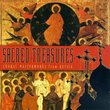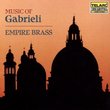| All Artists: Bedrich Smetana, Zubin Mehta, Israel Philharmonic Orchestra Title: Bedrich Smetana: Ma Vlast/My Fatherland Members Wishing: 0 Total Copies: 0 Label: Sony Release Date: 9/6/1994 Genre: Classical Styles: Forms & Genres, Theatrical, Incidental & Program Music Number of Discs: 1 SwapaCD Credits: 1 UPC: 074645894423 |
Search - Bedrich Smetana, Zubin Mehta, Israel Philharmonic Orchestra :: Bedrich Smetana: Ma Vlast/My Fatherland
 | Bedrich Smetana, Zubin Mehta, Israel Philharmonic Orchestra Bedrich Smetana: Ma Vlast/My Fatherland Genre: Classical
Bedrich Smetana (1824-1884) has been called the father of Czech music; indeed, he used his people's national folk idiom in protest against foreign political and cultural domination. Má Vlast, a cycle of six symphonic ... more » |
Larger Image |
CD DetailsSynopsis
Amazon.com Bedrich Smetana (1824-1884) has been called the father of Czech music; indeed, he used his people's national folk idiom in protest against foreign political and cultural domination. Má Vlast, a cycle of six symphonic poems held together by some recurring thematic material, was begun in 1874 and premiered in 1882. Most of the music celebrates the Bohemian countryside with beguiling melodies, luscious harmonies, and masterly, colorful orchestration. "Vysehrad," a portrait of the majestic castle overlooking Prague, opens with broad harp arpeggios; in "The Moldau," the cycle's most familiar movement, the music follows the great river's course from its two sources through a peasant wedding, a hunt, the rapids, nymphs dancing in the moonlight, and past the castle as the harp arpeggios recur. "Sárka" was a warrior maiden betrayed in love, who wreaks vengeance on men by slaughtering a company of knights. "From Bohemia's Woods and Meadows" is a pastoral idyll that lovingly depicts sunlit fields and shady forests. The last two movements, based on a Hussite chorale, commemorate the Hussites' courageous, hopeless struggle for their faith. "Tábor" was their settlement, "Blaník" a mountain inside which the defeated slain warriors wait, asleep, to resume their fight. Despite his patriotic fervor, Smetana seems less at home describing bloody battles than his beloved countryside, but the real miracle of this life-affirming work is that in the course of its creation, his health failed increasingly, and he suddenly became completely deaf; he attended its triumphant first performance, but could not hear it. This performance is warm, affectionate, and idiomatic; the wind solos are particularly lovely. --Edith Eisler Similarly Requested CDs
|
CD ReviewsSolid Smetana Brett A. Kniess | Madison, WI | 04/08/2000 (5 out of 5 stars) "Today, Bedrich Smetana, is only remembered for a handful of compositions, the most famous, his opera The Bartered Bride, and the symphonic cycle Ma Vlast (My Fatherland) which is featured on this disk. When he wrote Ma Vlast, he was completely deaf, but since it has survived the years, it is obviously his ingenuity that is apparent in the work. In six movements, each is a musical portrait of his homeland (Chechoslovakia), whether visual or literary. The work is indicative of Romanticism and Nationalism: colorful orchestrations, melodically-centered with influences of native modes, and long, sweeping, dramatic unity. Vysehrad, 1st movement, is a legendary rock above the Moldau river; the work begins with a harp duet (as if bards were singing in ancient days) and so, melody is the feature here. Strings, woodwinds, and brass pass the melody in remembrance of the place with fondness; the tempo picks up, recalling the battles and glory fought at the site, with fanfares and the like; but now it lays in ruin, except the melody, which lays in remembrance. Vltava, or The Moldau, the second movement, follows the Czech river of the same name from its source, through the country, until it reaches the Elbe and deposits there. A stirring and modal melody encapsulated the river theme, and reoccurs throughout, a satisfying arrival and melody. Along the way, forest hunting with horn calls, a countryside wedding dance ( a rustic, yet courtly dance), water nymphs with shimmering, yet flowing themes, and turbulent waters, eventually leads to a positive and welcome feeling for the river. The most famous movement, not by accident, is an emotional ride. The third movement follows the story of Sarka, wronged by her male lover, seeks revenge against all men. She tied herself to a tree and a military band arrives to save her. Once let go, she entices them with love, feeds them, drugs them to sleep, and her band of women enter into a bloody battle. The music depicts each step of the story with great clarity; her bitterness at the opening, her pleas for help on clarinet, a sweeping love scene, a polka-dance at a feast, the falling asleep of the troops musically, and a riotous attack on the men. The fourth movement, From Bohemia's Wood's and Fields, is a sort of travelogue of his homeland. A scherzo-like fugue propels the movement forward, but is joined by a folksy wind chorale over top. A dance intercedes, but all combines in the end for an exultant finale. Tabor, the fifth movement, was a community of Hussites, Czech protestants, who fought against an enemy far greater in number than their community. The movement is based on the chorale "You who are God's Warriors" showing the communities willpower, determination, stubborn battles, fearlessness, and perseverance. Both slow and fast sections are staunch, bold settings of the chorale with inventive techniques of the past as well as Romantic traits. The final chorale has medieval qualities, rooted in the past, as well as brief moments of hope, but ending unresolved. Blanik, the final movement, continues the Hussite struggle, using identical motives. The host retreats to a mountain, and slumber until their homeland calls them to arms once again, ensuring the glory and happiness of the people and land of Czechoslovakia. The music continues with the exact music ended in Tabor, but subsides into a brief respite, a pastoral setting for horn, oboe, and flute. A Glorious and triumphant conclusion follows with a march. Zubin Mehta and the Israel Philharmonic Orchestra give a middle of the road performance of this often played symphonic cycle. The orchestra has an amazing sense of ensemble, no voices overplay, and the overall effect is natural, free, and vibrant. At 70 minutes, Mehta takes the work at all of Smetana's tempos, following articulations very closely; overall, a moderate, but intelligent appraoch. The Sony sound is good and captures the orchestra with great clarity. This is Smetana's famous music played at its best; a fine recording with excellent performances: recommended." A straightforward reading without special qualities Santa Fe Listener | Santa Fe, NM USA | 02/24/2008 (3 out of 5 stars) "Perhaps the five-star reviewers here haven't heard other versions of Ma Vlast that stand as classics, becasue Mehta's reading contains almost none of the virtues they attribute to it. It isn't Czech in feeling but quite anonymous; it isn't passionate but literal and plainn-faced; it isn't played with virtuosity by the Israel Phil. but with their usual workmanlike proficiency. In other words, the only appeal here is to fans of either the orchestra or the conductor, who have had a long, loyal, and productive relationship over the decades. As a comptetitive account of Ma Vlast, it falls solidly in the middle of the pack." Straightforward and vigorous reading cntha | 07/24/2010 (4 out of 5 stars) "If you need a complete collection of Smetana's tone poem cycle "Ma Vlast" for reference, or just want to explore some of the composer's works that are less popular that "Moldau," this recording might be for you. It's certainly interesting to hear all six of them together, and compare their similarities (including much whole-cloth borrowing of themes) and differences.
As far as interpretation goes, Mehta and the IP seem at their best during the turbulent sections, (i.e., the storm in "Moldau," or the desperate battle near the end of Sarka). In the lighter, "folk music" like parts, Mehta's unfussy reading my seem slightly graceless to some, but simplicity is certainly a legitimate approach, perhaps striving for the artlessness of an untutored peasant band. Sonically, it's a pleasant recording, not too dry, and seemingly engineered to bring out the cohesiveness of the various sections rather than landing solos right in your lap. All in all, it's a straightforward and vigorous reading that deserves a hearing." |

 Track Listings (6) - Disc #1
Track Listings (6) - Disc #1








